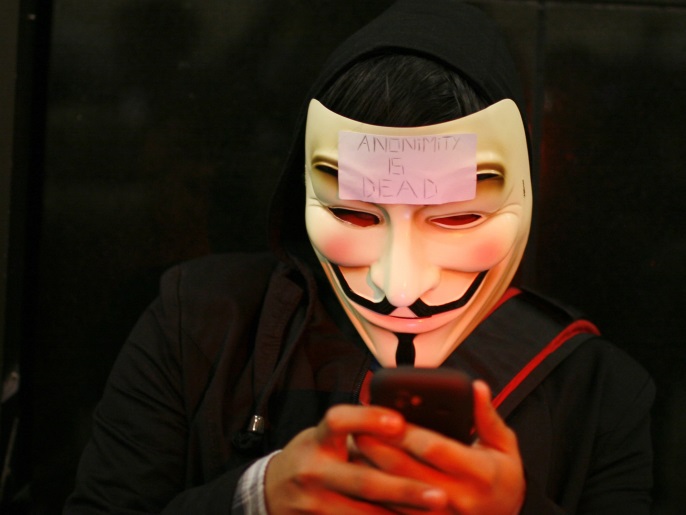The FBI has had a problem for years, as crime organizations have used encrypted phone companies such as Phantom Secure, Sky and Ciphr to communicate with their partners about their operations.
These phones, which sometimes exclude GPS functionality and provide features of remotely wiping phone information in the event of a device grab, have helped criminals do business, but they're not ideal.
Last year, French authorities hacked one of these services, and were able to read millions of encrypted messages that led to hundreds of arrests across Europe.
But the FBI's plan was even bolder. Instead of hacking an existing encrypted phone company used by criminals, it set up a honey trap.
She secretly created her own encrypted phone company and marketed it to criminal organizations.
This allowed the Bureau of Investigation to see the content of the exchanged communications between the criminals.
The challenge for the FBI was that running a fake codec phone company was not very different from running a real code phone company.
The challenge the FBI faced was running a fake encrypted phone company (Reuters)
New details of the biggest cyber-espionage story for encrypted devices have emerged from Andrew Young, a partner in the litigation division of the San Diego office of Barnes & Thornburg law firm in San Diego and former Attorney General of the Department of Justice in the Anom case. The company the FBI used to trap criminals.
Young told Motherboard that the FBI needed to make the fake company credible so criminals could buy and use the phones.
He explained that the company was required to operate customer service, solve technical problems for users and possibly deal with hackers as well, and the FBI entered an industry through which companies hack or disrupt each other in an attempt to discredit their competitors.
Anom had to look like any new phone company criminals wanted to use.
The FBI decided to ask people who had previously distributed phones to the underworld to start selling Anum, according to court records.
"We copied what other companies were doing," Young said.
In the end, the FBI was successful, and law enforcement agencies in Australia, Europe, and the United States recently announced Operation Trojan Shield, in which Anom's devices obtained more than 27 million messages from users in more than 100 countries.
Criminals used Anom as a secondary phone along with the Sever phone, which is popular with criminals in Australia (Reuters)
The FBI often wanted access to an encrypted phone company.
As Motherboard previously revealed, the bureau initially tried to get a backdoor at Phantom Secure, a worldwide known encrypted telephone company used by motorcyclists and drug gangs in Sinaloa, Mexico.
He also needed to avoid making the phone public, because if the devices ended up in the hands of the general public, it would raise serious ethical and legal issues related to the surveillance of people not involved in the crime world.
A former phantom seller based in Australia said in a previous statement that he noticed Anom was gaining traction, and it was going up really well in the country.” At the time, they didn't know this was actually the FBI.
Initially, criminals used Anom as a secondary phone along with Sever Phone, another encrypted phone company popular with criminals in Australia.
One of the court records stated that, during the operation, law enforcement authorities found that some criminals used one chain of phones to discuss the logistics part of a drug shipment, and used another network such as Safeer or Sky to talk about concealing the illicit proceeds.
Oftentimes, encrypted phone companies only allow users to talk to each other on their network, which means they may need two different phones on different networks to talk to specific people.
In addition to announcing the covert operation this week, the Australian Department of Justice released an indictment against 17 people for allegedly working for Anum.
Hakan Ayk, a drug smuggler dubbed "The Facebook Gangster" by the Australian media for his prolific social media posting, is alleged to be responsible for providing Anom devices to some primarily criminal Australian users.
Given the threat now to his safety for his role in unknowingly assisting the FBI, Australian authorities are encouraging Ike to turn himself in.
Usually, when the authorities shut down one encrypted phone company, its users flock to another company that might offer special offers to new customers.
Currently, Cypher is one of the more established remaining companies.
It is not clear if Cypher's user base increased after the closure of Anom, and it declined to comment on Anum's case in an email to Motherboard.
"We wanted to break trust in the encrypted phone industry that meets the needs of criminals," Young said.
"Whether that means going back to handwritten notes and walking in the park and covering their mouths so no one can read their lips, or whether that means they go to more legitimate means. What we're trying to do is at least remove this tool from them," he added. Because it was clearly criminal."

